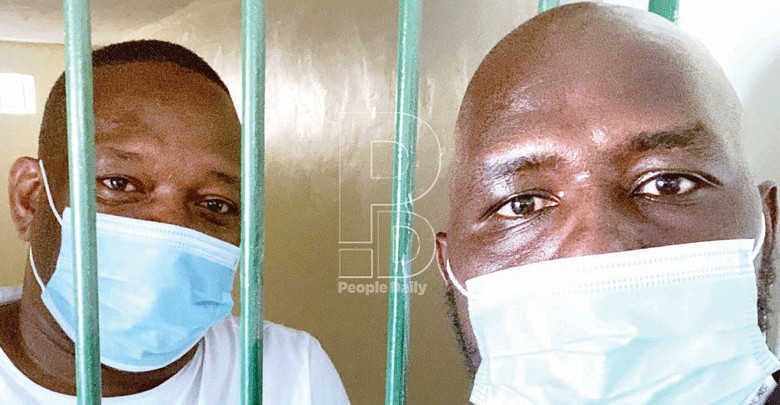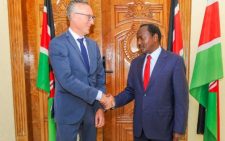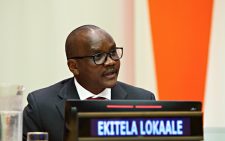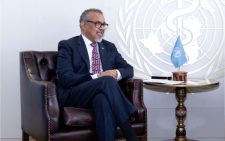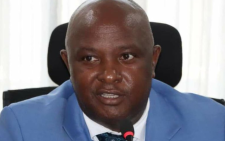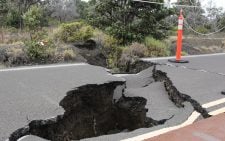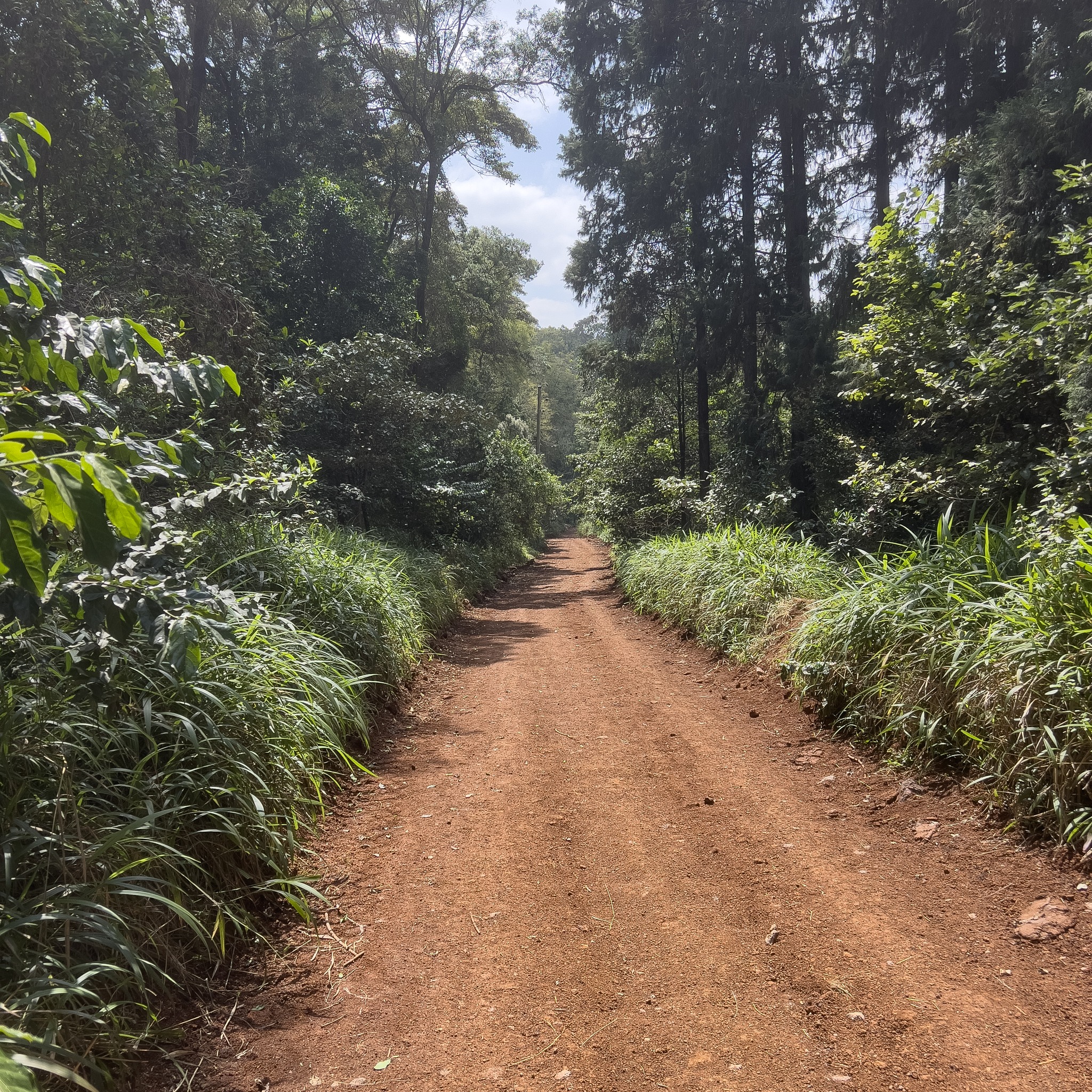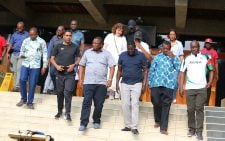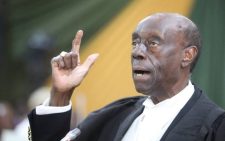From a life of crime to the pulpit, pastor shares his turning point
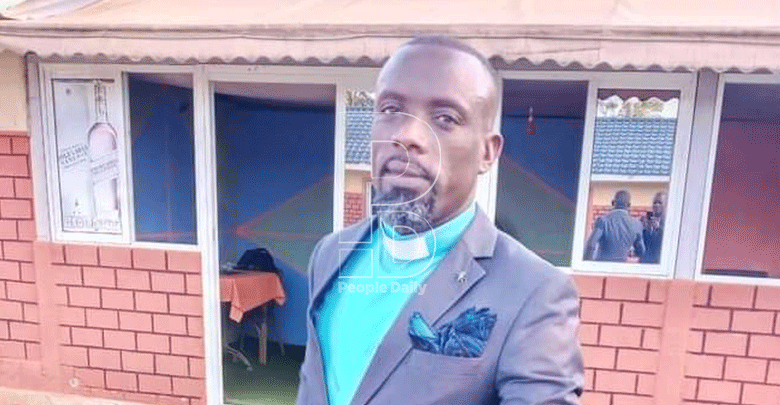
By Harriet James
When Kennedy Otieno Odeny was just three years old, his father passed away, and thus life as he knew it changed.
His mother was inherited by a step uncle (a step brother to his late father) according to Luo traditions .
Though not financially able, their step uncle took care of them. But 10 years later, another tragedy struck in 1993.
“My mother passed away too and her body had to be brought back to where my father was buried.
We had no house there and the family had to build a house where her body had to be laid overnight just before burial as per the traditions,” he narrates.
Kennedy recalls that that was the most traumatic event in his life. He was still a teen and being the first born meant that he had to step up and take care of his younger brothers.
They were chased away from their father’s home and the man who had inherited their mother was still not financially stable to take care of them.

“Life was tough and after five years, I moved out and started fending for myself. I found myself with the wrong group and joined crime. I was arrested when I was just 18 years,” Kennedy says.
Left for dead
His step uncle bailed him out, but Kennedy returned to the life of crime. “I would rob banks and hurt people.
Life became so bad until one day I was caught by mob at Country Bus station in Nairobi.
They beat me up, I almost died. When the police came, they took me to the mortuary only to discover that I was still alive.
They then took me to hospital and later on I was sent to prison for five years,” he recalls.
According to Kennedy, one of the main reasons he robbed and was rebellious was because of the pain and frustration of how he was treated when his parents passed away.
“My uncle once told me that I was born out of wedlock and that after my mother’s burial, they would take me to my biological father. He told me things that made me feel bitter and rejected.
I had never met my so called father, so I wondered why he told me that and this drove me to the streets, a life that has no meaning,” he says.
Life in Homa Bay prison was terrible. As he recalls, so terrible it was that he one day wanted to end his life in 1997, three and a half years after staying in prison.
“There was a partition to the toilet in the cell where we slept. So at night, I took my blanket, made a rope from it and wanted to end it all.

While struggling to do so, a born again prisoner came and rescued me. He reminded me that God loves me and that night I gave my life to Christ in 1997,” Kennedy shares.
Becoming born again gave Kennedy a peace of mind and he managed to complete his prison term. But life after prison too wasn’t a bed of roses.
“No one believes that you are transformed person after leaving prison. No one wants to be near you.
I went to live with my younger brother, which was also against the Luo traditions.
The firstborn son cannot sleep in the house of the younger one. It’s chira (taboo) that can result to death,” he explains.
Despite the fact that nothing happened to him or his brother’s family for the three years that he stayed with them, Kennedy admits that such talks affected him and made him feel like a prisoner.
“It was like I was a failure. I remember my cousins calling and telling me to build a shelter just to make sure that the culture is fulfilled. I told them to give me time.
I went to my younger brother’s house despite it being a taboo and nobody died,” he says.
The breakthrough
But in church, Kennedy found people who accepted him as he was. As he was going to church, Kennedy was involved in various church activities and at one time felt the call of God to be a pastor.
He also went back to school and sat for his Kenya Certificate of Secondary Education (KCSE) in 2004.
However, he still faced struggles transforming. “There were times I wanted to go back and steal for the easy money.
Other times I would see women and be filled with lust. It took me time to change, but I eventually overcame,” Kennedy says.
In 2006, he met and married Janet Otieno who attended the same church he worshiped from.
He also began ministering to those in prison to give them hope. He also operated a small barber shop and one time, while he was cutting a client’s hair, an opportunity came knocking.
“She told me that her friends from the US needed a translator. My breakthrough came when I got that opportunity.
I have been working for these people, assisting them in translation when they are around. I managed to save and buy land and build the house where I now live.
I also have a church where I am a pastor too at Pefa Church, Makongeni, Homa Bay,” he says.
For now, Kennedy is glad that his family is reunited. Apart from preaching in church and on radio, he also goes to prisons, schools and the community teaching against cultural practices such as wife inheritance, women rights, among others.
“I attended training by Kenya Legal and Ethical Issues Network on HIV/Aids (KELIN), which assisted me learn more on women’s rights.
I understood how the rights of women were being violated as the case of my mother and siblings.
I was looking for a platform where I could be able to fight and advocate for change against these vices.
Now I’m glad that with my position, I am working towards creating the change I desire to see,” he says.
